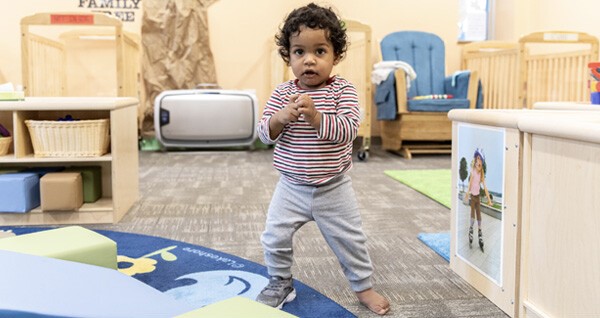Early Learning Facilities Policy Framework Update
Authors: Early Learning Facilities Working Group
May 12, 2025

In every state, parents struggle to find child care because the potential need for care far exceeds the available supply in urban and rural communities. In fact, the lack of child care affects the labor force participation of parents, with nearly five million reporting that they are not working because they are caring for children not in child care or school. Child care facilities play an essential role in making quality care available to working families, yet many child care programs have safety and renovation needs that contribute to supply scarcity, hinder the healthy development of children, and undermine the health and safety of child care professionals.
In 2018, a national working group of 20 organizations gathered to discuss the urgent need for child care facilities across the country. The group developed a child care facilities policy framework including a set of principles to guide facility expansion and renovation to support the needs of working parents and the health, safety and development of children and child care professionals. After seven years, and much progress, this brief updates the original framework, calls attention to the role of facilities in child care supply expansion and critical program safety improvements, and reflects the significant gains that states and localities have amassed in recent years.
The core principles critical to the development of policies, strategies, and funding for child care facility investments have not changed. Dedicated facilities funding is needed. The following framework describes major tenets that can guide a multi-sector response to child care infrastructure challenges.
The Core Principles
- Child care is an essential workforce support and an essential component of the workforce system.
- Child care impacts the healthy development of children.
- Child care is critical to the economic health and success of local communities and the national economy.
- Child care opportunities, needs and challenges depend on a variety of local, state, and national factors.
COOKIE USAGE:
The University of Nebraska System uses cookies to give you the best online experience. By clicking "I Agree" and/or continuing to use this website without adjusting your browser settings, you accept the use of cookies.


